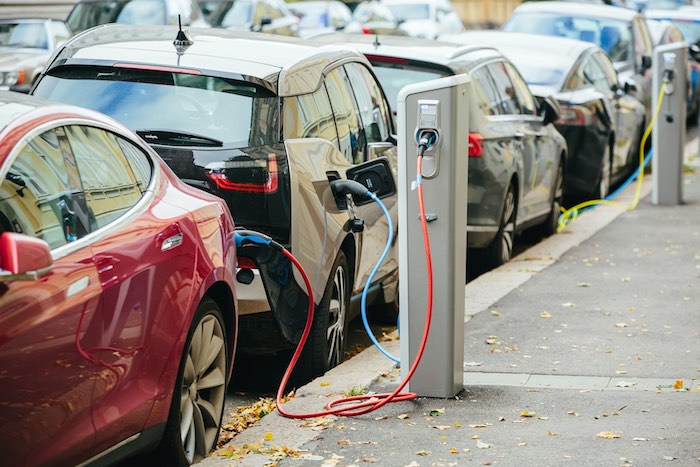Automotive
Lithium Prices: What They Tell Us About the Popularity of Electric Vehicles

From EnergyNow Media
By Jim Warren
The online database, Trading Economics, indicates that in June 2023 the global price for lithium had risen to $59,212 per tonne. But by November it had fallen by more than half to $27,218. Prices have continued to plummet. As of December 31, lithium was selling for just $18,242 per tonne.
How could this be? Electric vehicle (EV) mandates established in many rich developed countries over the past few years had analysts predicting that if targets were actually met, the world would need 388 new lithium mines by 2035. A Fraser Institute study suggests that getting enough mines built to satisfy all the mandates will be a problem. It takes from seven to ten years to get a mine financed, approved and built.
Canada’s Environment Minister, Steven Guilbeault is certainly trying to drive up demand for lithium. The federal government’s Zero Emissions Vehicle Standard insists that by 2030, 20% of all new passenger cars, SUVs and light trucks sold in Canada must be greenhouse gas emissions free. New battery plants are being handsomely subsidized in Canada to power all of the new electric cars that will presumably be required. With similarly aggressive mandates in Europe and US states led by California there should be heavy demand for lots of batteries and a mountain of lithium.
The most likely explanation for collapsing lithium prices is US consumers’ reluctance to embrace electric vehicles. The Economist reports that EVs accounted for just 8% of new vehicle sales in America this past year. GM was only able to sell 20,000 EVs, but it did manage to sell over half a million fossil-fueled vehicles. Disappointing demand for EVs prompted GM to shelve plans to spend $4 bn to convert one of its plants to electric pickup truck production. Ford has similarly lost enthusiasm for EVs. This past fall it decided to delay plans to invest $12bn in EV production. Companies that make lithium batteries for EVs have responded accordingly. This past fall battery plants in Georgia and Michigan laid off hundreds of employees. Fewer batteries translated into less demand for lithium.
It would appear that EV adoption goals established under Joe Biden’s eye-wateringly expensive green transition initiative (disguised as the “Inflation Reduction Act,”) are not being met. The Biden plan offers tax credits of up to $7,500 for people who purchase EVs. However that hasn’t been a sufficient sweetener. The average EV sold in the US has a $52,000 price tag and that doesn’t account for additional costs like wiring a home charging set up. California, Florida and Texas account for over half of US EV sales and are also responsible for high average sticker prices. Ostensibly virtuous EV buyers in the US have a bit of hypocrisy going on. They’ll happily drive EVs as long as they are full size SUVs. Batteries are heavy which makes EVs heavier than gas and diesel fueled vehicles. And, electric SUVs are especially heavy—heavy enough to increase the chances of deadly collisions. Tesla has apparently created a super-sized SUV, designed for wealthy California drivers, that makes the Hummer look like a toy. And, because they are extra heavy, driving them uses more electricity and it takes extra energy and materials to build them. Furthermore, given that fossil fuels still account for 60% of the electricity generated in the US, EVs are less environmentally friendly than advertised. They are far from being “emissions free.”
EVs are indeed more popular in Europe and China. In Europe 1.5 million EVs were sold this past year and 3.5 million were sold in China. The models sold in China are small, zippy units that don’t weigh much. However, like in the US, around 60% of the electricity consumed in China is generated by burning fossil fuels (mostly coal).
Despite having a copycat EV mandate that mirrors those in Europe, Canadian sales have been even less stellar than what the US has been able to achieve. In 2021, EVs accounted for just 5.3% of new car sales in Canada. Most of them were sold in Ontario, BC and Quebec (55,229) which makes sense—those are the provinces where most Canadians and most climate-alarmed Canadians live. In all the rest of Canada just 7,301 electric vehicles were purchased.
Clearly, the adoption of electric vehicles has failed to meet the overly ambitious targets set by environmentally-friendly policy makers. This result lines up with the litany of missteps and missed targets that have plagued green transition projects over the past two years. The failures include the big decline in demand for new solar and wind power projects and the reversal of greenhouse gas emissions reduction projects in the UK and Europe. An issue this could raise for us in Canada is that Steven Guilbeault might see the international data and worry that his transition plans need to be beefed-up. He could make them even more onerous, expensive and ludicrous.
Automotive
Canada’s EV Mandate Is Running On Empty

From the Frontier Centre for Public Policy
At what point does Ottawa admit its EV plan isn’t working?
Electric vehicles produce more pollution than the gas-powered cars they’re replacing.
This revelation, emerging from life-cycle and supply chain audits, exposes the false claim behind Ottawa’s more than $50 billion experiment. A Volvo study found that manufacturing an EV generates 70 per cent more emissions than building a comparable conventional vehicle because battery production is energy-intensive and often powered by coal in countries such as China. Depending on the electricity grid, it can take years or never for an EV to offset that initial carbon debt.
Prime Minister Mark Carney paused the federal electric vehicle (EV) mandate for 2026 due to public pressure and corporate failures while keeping the 2030 and 2035 targets. The mandate requires 20 per cent of new vehicles sold in 2026 to be zero-emission, rising to 60 per cent in 2030 and 100 per cent in 2035. Carney inherited this policy crisis but is reluctant to abandon it.
Industry failures and Trump tariffs forced Ottawa’s hand. Northvolt received $240 million in federal subsidies for a Quebec battery plant before filing for bankruptcy. Lion Electric burned through $100 million before announcing layoffs. Arrival, a U.K.-based electric van and bus manufacturer, collapsed entirely. Stellantis and LG Energy Solution extracted $15 billion for Windsor. Volkswagen secured $13 billion for St. Thomas.
The federal government committed more than $50 billion in subsidies and tax credits to prop up Canada’s EV industry. Ottawa defended these payouts as necessary to match the U.S. Inflation Reduction Act, which offers major incentives for EV and battery manufacturing. That is twice Manitoba’s annual operating budget. Every Manitoban could have had a two-year tax holiday with the public money Ottawa wasted on EVs.
Even with incentives, EVs reached only 15 per cent of new vehicle sales in 2024, far short of the mandated levels for 2026 and 2030. When federal subsidies ended in January 2025, sales collapsed to nine per cent, revealing the true level of consumer demand. Dealer lots overflowed with unsold inventory. EV sales also slowed in the U.S. and Europe in 2024, showing that cooling demand is a broader trend.
As economist Friedrich Hayek observed, “The curious task of economics is to demonstrate to men how little they really know about what they imagine they can design.” Politicians and bureaucrats cannot know what millions of Canadians know about their own needs. When federal ministers mandate which vehicles Canadians must buy and which companies deserve billions, they substitute the judgment of a few hundred officials for the collective wisdom of an entire market.
Bureaucrats draft regulations that determine the vehicles Canadians must purchase years from now, as if they can predict technology and consumer preferences better than markets.
Green ideology provided perfect cover. Invoke a climate emergency and fiscal responsibility vanishes. Question more than $50 billion in subsidies and you are labelled a climate denier. Point out the environmental costs of battery production, and you are accused of spreading misinformation.
History repeatedly teaches that central planning always fails. Soviet five-year plans, Venezuela’s resource nationalization and Britain’s industrial policy failures all show the same pattern. Every attempt to run economies from political offices ends in misallocation, waste and outcomes opposite to those promised. Concentrated political power cannot ever match the intelligence of free markets responding to real prices and constraints.
Markets collect information that no central planner can access. Prices signal scarcity and value. Profits and losses reward accuracy and punish error. When governments override these mechanisms with mandates and subsidies, they impair the information system that enables rational economic decisions.
The EV mandate forced a technological shift and failed. Billions in subsidies went to failing companies. Taxpayers absorbed losses while corporations walked away. Workers lost their jobs.
Canada needs a full repeal of the EV mandate and a retreat from PMO planners directing market decisions. The law must be struck, not paused. The contrived 2030 and 2035 targets must be abandoned.
Markets, not cabinet ministers, must determine what technologies Canadians choose.
Marco Navarro-Genie is vice-president of research at the Frontier Centre for Public Policy and co-author, with Barry Cooper, of Canada’s COVID: The Story of a Pandemic Moral Panic (2023).
Automotive
Trump Deals Biden’s EV Dreams A Death Blow


From the Daily Caller News Foundation
President Donald Trump dealt the dreams of former President Joe Biden for an all-electric fleet of American cars a fatal blow on Thursday by terminating the onerous Corporate Average Fuel Economy (CAFE) standards Biden invoked in 2022 and further tightened in 2024.
“We’re officially terminating Joe Biden’s ridiculously burdensome, horrible actually, CAFE standards, that imposed expensive restrictions… It puts tremendous pressure on upward car prices,” Trump said during a press conference held in the Oval Office Thursday afternoon.
The Biden standards, which cranked down on allowable tailpipe emissions and raised industry-wide average car mileage to a stratospheric 50.4 miles per gallon requirement by 2030, were the centerpiece of his strategy to force American consumers to buy electric vehicles by intentionally forcing up prices for traditional internal combustion models.
Dear Readers:
As a nonprofit, we are dependent on the generosity of our readers.
Please consider making a small donation of any amount here.
Thank you!
That’s right, America: Your government, led by Joe Biden’s autopen and the woke staffers who wielded it, intentionally and with malice aforethought drove up the prices of the gas powered cars you actually want to buy to try to force you to purchase electric models that poll after poll proves most of you don’t want. They did this all in the name of the global climate alarm religion, which far too many U.S. politicians use to justify a vast array of authoritarian actions.
The unbridled hubris involved in even entertaining this concept would have in the past been considered scandalous. Yet, today, it is completely in keeping with one of the central goals of the energy transition movement to drive up the costs of all traditional forms of energy to try to make the subsidized alternatives favored by the Democratic Party – wind, solar, and electric vehicles – competitive in the market. Activists in the climate alarm movement no longer even try to deny this goal – they proudly boast about it.
This was the real enterprise behind Biden’s ridiculous CAFE standards, and it is what President Trump interrupted on Thursday. It was just the latest in a series of body blows Trump and his officials have dealt the U.S. EV industry, one that could well prove fatal to many pure-play electric car companies and force major reallocations of capital budgets inside integrated automakers like Ford, GM, and Stellantis.
Naturally, the climate alarm activist community was outraged. “Trump’s action will feed America’s destructive use of oil, while hamstringing us in the green tech race against … foreign carmakers,” said Dan Becker, Director of the notorious far-left conflict group, the Center for Biological Diversity, according to the Guardian.
But here’s the thing: U.S. consumers don’t want to buy the alternative the climate alarm community and Biden administration were trying to force. Even with the attraction of Biden’s economically ruinous $7,500 per unit IRA subsidies, U.S. car buyers made clear their strong preference for big, full-size, gas-or-diesel-powered pickups and SUVs.
This reality is why Stellantis announced in September it was abandoning plans to introduce a full-size electric pickup to compete with Ford’s F-150 Lightning. Even worse for EV boosters, Ford has already cut back on production of the Lightning model, and is planning to eliminate it entirely soon, according to the Wall Street Journal. These decisions and plans were already underway long before Trump’s decision to rescind the CAFE standards, based on simple consumer demand.
Interestingly, many consumers believe Trump didn’t go far enough on Thursday, and that he should simply eliminate mileage requirements altogether. One commenter to my Substack newsletter writes, “why didn’t they just kill CAFE standards once and for all? From what clause in the Constitution does the federal government have the right to limit what type of car I can buy?…They should have just killed it outright.”
It’s a legitimate question: Why do federal regulators believe they have the right to control consumer behavior in the name of climate alarmism? In light of last year’s decision by the Supreme Court to rescind the Chevron deference – which helped facilitate the massive expansion of the federal bureaucracy for 40 long years – it’s a question that could be litigated in the months and years to come.
Joe Biden’s EV dreams are dead now, but that doesn’t mean the situation can’t possibly get even worse for the EV industry in America. Stay tuned.
David Blackmon is an energy writer and consultant based in Texas. He spent 40 years in the oil and gas business, where he specialized in public policy and communications.
-

 National20 hours ago
National20 hours agoLiberal bill “targets Christians” by removing religious exemption in hate-speech law
-

 Business2 days ago
Business2 days agoThe EU Insists Its X Fine Isn’t About Censorship. Here’s Why It Is.
-

 Business2 days ago
Business2 days agoCanada invests $34 million in Chinese drones now considered to be ‘high security risks’
-

 Bruce Dowbiggin2 days ago
Bruce Dowbiggin2 days agoWayne Gretzky’s Terrible, Awful Week.. And Soccer/ Football.
-

 Business17 hours ago
Business17 hours agoLooks like the Liberals don’t support their own Pipeline MOU
-

 Economy2 days ago
Economy2 days agoAffordable housing out of reach everywhere in Canada
-

 Health2 days ago
Health2 days agoCDC Vaccine Panel Votes to End Universal Hep B Vaccine for Newborns
-

 Business1 day ago
Business1 day agoThe Climate-Risk Industrial Complex and the Manufactured Insurance Crisis



